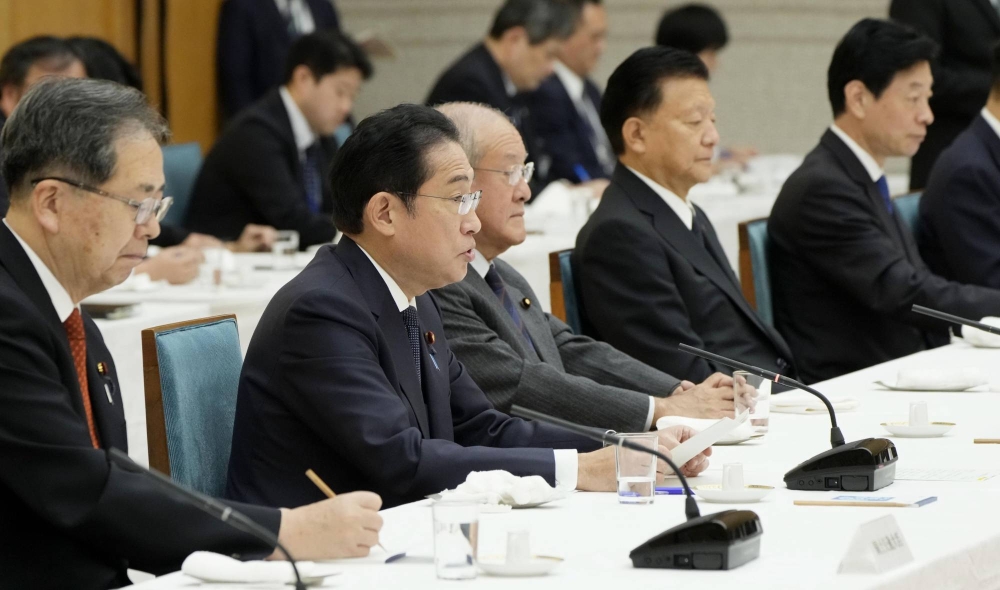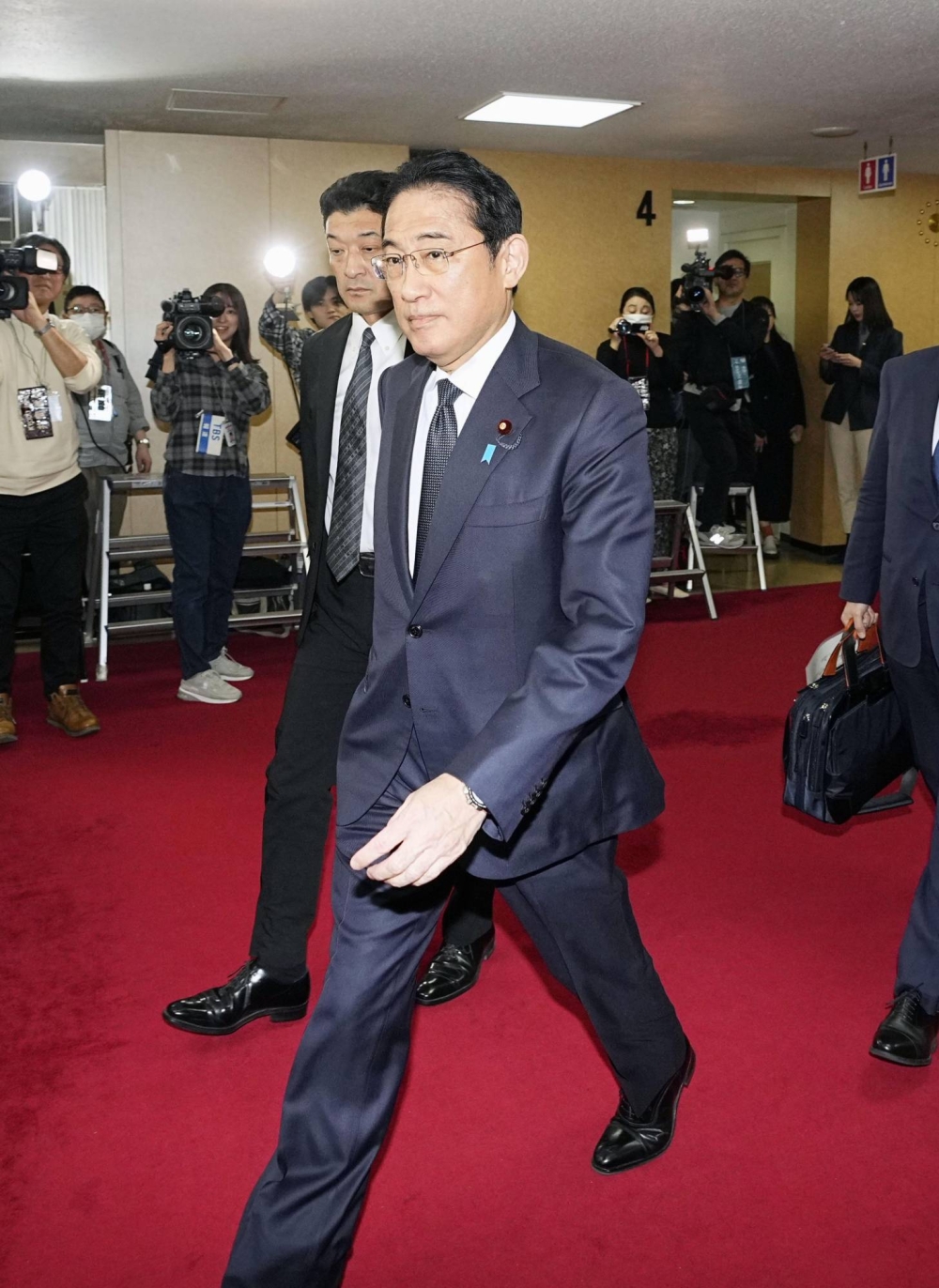Japanese Prime Minister Kishida Resigns As Faction Chief Amidst Scandal
In a move that signals the deepening crisis within Japan's political landscape, Japanese Prime Minister Kishida resigns as faction chief amidst scandal in the ruling Liberal Democratic Party (LDP).
Author:Dexter CookeReviewer:Hajra ShannonDec 07, 202389 Shares89K Views

In a move that signals the deepening crisis within Japan's political landscape, Japanese Prime Minister Kishida resigns as faction chief amidst scandalin the ruling Liberal Democratic Party (LDP).
The political funds scandal, which has cast a shadow over Kishida's government, has prompted this surprising development.
Allegations Of Underreported Revenue Rock LDP
The LDP, facing criticism and scrutiny, is grappling with allegations that several factions, including Kishida's, underreported their revenue from political fundraising parties.
The scandal suggests that extra income might have been returned to lawmakers as kickbacks, raising concerns about the integrity of the political funding process.
While Kishida's predecessors typically resigned as faction leaders during their terms as prime minister to avoid the appearance of patronage-driven politics, he retained the position since assuming office in October 2021.
However, the escalating scandal appears to have compelled Kishida to take decisive action to address the public's concerns.
Kishida's Pledge To Restore Public Trust
Addressing reporters, Kishida asserted his commitment to lead the party's efforts to restore public trust. He acknowledged the gravity of the situation and emphasized the need for transparency and accountability within the LDP.
The decision to step down from his faction while serving as premier is seen as a bold move to distance himself from the controversy.
The LDP's factional system, a long-standing feature of Japanese politics, has traditionally played a role in providing election funding and recommending members for ministerial posts.
However, critics argue that this structure has enabled the generation of secret funds, making it challenging to trace the flow of money within the factions.
Kishida's Damage Control Measures
In an attempt at damage control, Kishida instructed LDP executives to refrain from hosting fundraising parties. The prime minister highlighted the urgency of addressing the scandal to rebuild public confidence.
The Cabinet's approval ratings have plummeted to their lowest levels since Kishida assumed office, adding to the pressure on the government.
Apart from the funds scandal, Kishida faced additional challenges this week when forced to deny links to the controversial Unification Church.
Reports suggested a meeting with senior figures of the organization in 2019. Despite the denial, questions linger, further complicating Kishida's political standing.
The Tokyo District Public Prosecutors Office's special investigation squad is actively looking into the political funds scandal.
The prosecutors are considering questioning lawmakers involved in alleged kickbacks once the current parliamentary session concludes. As the scandal unfolds, uncertainty looms over the future of the LDP and Kishida's leadership.
Opposition's Call For Resignations
The scandal has triggered sharp criticism from the opposition, with calls for the resignation of Cabinet members involved.
Former Prime Minister Yoshihiko Noda urged those implicated to step down, emphasizing the importance of accountability in handling public funds.
With a budget committee session scheduled for Friday, the government is bracing for intense scrutiny and criticism from the opposition. The unfolding events mark a critical juncture in Japanese politics, with the potential to reshape the political landscape in the coming weeks.
In the face of these challenges, Prime Minister Kishida's leadership is under severe scrutiny, and the outcome of the ongoing investigations will undoubtedly influence the future trajectory of Japan's political arena.
Final Words
Prime Minister Fumio Kishida's resignation as a result of the political funds scandal exacerbates Japan's political crisis. Allegations of underreported revenue and kickbacks have shaken the government and public confidence.
The looming prosecutorial investigation and opposition calls for resignations highlight the uncertainty surrounding the LDP and the prime minister's leadership.

Dexter Cooke
Author
Dexter Cooke is an economist, marketing strategist, and orthopedic surgeon with over 20 years of experience crafting compelling narratives that resonate worldwide.
He holds a Journalism degree from Columbia University, an Economics background from Yale University, and a medical degree with a postdoctoral fellowship in orthopedic medicine from the Medical University of South Carolina.
Dexter’s insights into media, economics, and marketing shine through his prolific contributions to respected publications and advisory roles for influential organizations.
As an orthopedic surgeon specializing in minimally invasive knee replacement surgery and laparoscopic procedures, Dexter prioritizes patient care above all.
Outside his professional pursuits, Dexter enjoys collecting vintage watches, studying ancient civilizations, learning about astronomy, and participating in charity runs.

Hajra Shannon
Reviewer
Hajra Shannona is a highly experienced journalist with over 9 years of expertise in news writing, investigative reporting, and political analysis.
She holds a Bachelor's degree in Journalism from Columbia University and has contributed to reputable publications focusing on global affairs, human rights, and environmental sustainability.
Hajra's authoritative voice and trustworthy reporting reflect her commitment to delivering insightful news content.
Beyond journalism, she enjoys exploring new cultures through travel and pursuing outdoor photography
Latest Articles
Popular Articles
